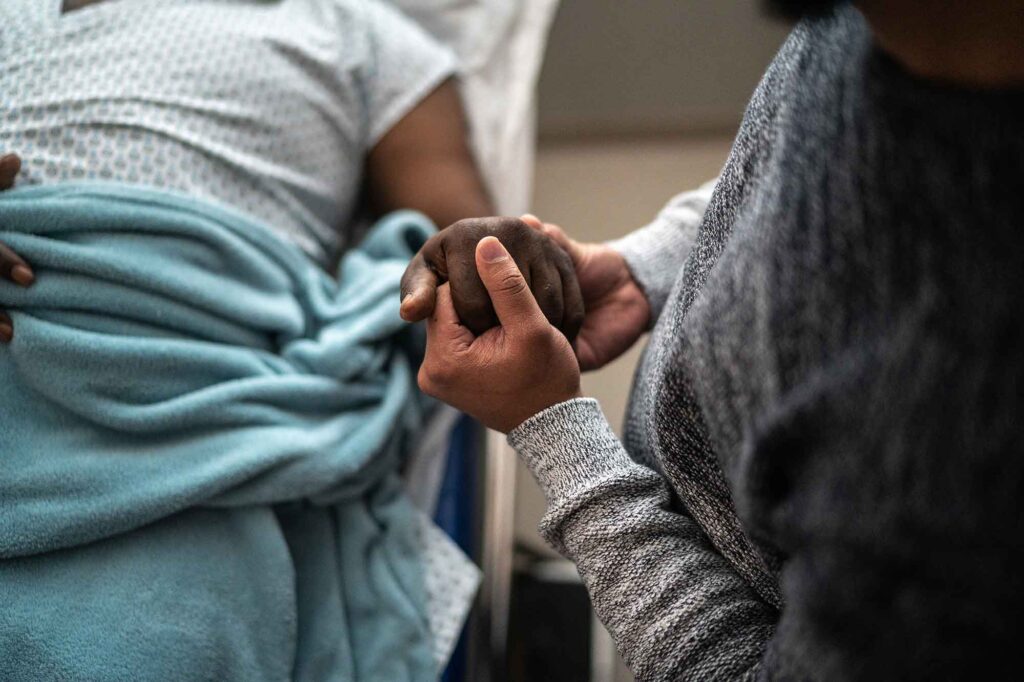I often have ample opportunity, willing or unwilling, to participate in small talk at company parties, Christmas events, and the neighbors’ Festival of Lights gatherings throughout the holiday season. While the small talk can range from local sports teams to the weather to what I do for a living, the latter topic—my career—is usually more than just small talk. My deeply personal story about why I do what I do often jolts an audience out of conversational reverie. I’m not your typical wealth-planning-solution insurance professional, and my story is equally atypical.
My life changed at age 14
Does anyone remember what they were doing on March 5, 2004? That night remains a vivid memory for me, following a day that had been relatively nondescript, aside from being my sister’s 16th birthday. My mother was recovering from the harrowing experience of shepherding my sister through her first attempt at driving a car. My father suggested that perhaps she should begin traversing the local theme park, where cars were on rails and the driver had no real control. We laughed. My sister did not.
Like any well-behaved 14-year-old, I was no doubt in my room, cleaning or making the bed (wink). I went downstairs to get something to drink, and found my father watching one of our favorite movies, “Unforgiven,” from his usual spot in the recliner. Clint Eastwood and Gene Hackman were ushering the movie to its denouement as I sat down, fidgeting and shifting as the tension built in a classic wild West standoff.
Sharing movies was one of our favorite activities. Sadly, “Unforgiven” would be the last movie we enjoyed together.
I had to wake up unusually early the next morning, a Saturday, because my father and I would be attending a meeting to learn more about my student ambassadorship appointment in England and France. He addressed me with his usual morning greeting of “It’s alive!” He reveled in small jokes, and given the early hour of 7:00 a.m., I grunted an acknowledgment and proceeded to the family computer.
My sister was still asleep, and my mother, unwilling to risk her life again with the driving lessons, had left to borrow a family member’s car that had automatic transmission.
I was sitting at the computer in the dining room when my father opened the closet door no more than 10 feet from where I sat, removed the vacuum cleaner, and then simply stared off. It was the look of someone trying to organize their thoughts or figure out how to be most efficient with chores. Then, without warning, he collapsed. I quickly grabbed the phone and dialed 911.
An ambulance came and took my father to the hospital. When my mother returned home, we rushed to be with him, but a doctor informed us that despite the best efforts of paramedics, my father had passed away.
The rest of that day is something of a blur. The drive home was quiet, and I remember being confused by how ordinary death had seemed at the hospital: A priest performed last rites, the medical staff expressed their condolences, and we were told how to retrieve my father’s body after funeral arrangements were made, and how to participate in grief counseling.
That was it. That was all we were given. Then we were sent on our way to process the cosmic shift that had just occurred in our family.
After returning home, I felt the need to go for a walk. I was clearly in shock, trying to understand a new world without my father—this new life dulled by his absence. When I returned home some hours later, family and friends had gathered to offer companionship, provide food, and, most importantly, share memories of my father. There was a steady rhythm of crying, regaining composure, and then turning to laughter with the retelling of my father’s exploits.
During the following weeks, my mother and her best friend spent much of their time making arrangements, sending copies of his death certificate to the relevant authorities and preparing paperwork. My father had once served as vice president of a plastics franchise; therefore, most of his benefits, including life insurance, were provided through the former employer at the time. In 2003, my father was laid off during the significant economic downturn that followed 9/11 in 2001. This was just after he entered remission for esophageal cancer. He’d spent the last year of his life looking for a new job, before passing away from a cardiovascular condition.
Because of my father’s preexisting conditions, securing additional life insurance had been an abject impossibility. To make matters worse, he’d been the primary source of income for our household. Because he’d been unable to find new work, we were well into the process of declaring bankruptcy when he passed away. All told, the only asset available to my mother was his personally held $100,000 life insurance policy. This is what she would use to raise two kids on a receptionist’s income.
A quote from one of my favorite books, The Name of the Wind, applies to this story, especially as it pertains to my mother: “Perhaps the greatest capacity the human mind possesses is the ability to cope with pain.” Those who have lost a loved one can understand the truth of that statement. But emotional pain compounded by financial stress is something no one should have to endure. The stress of finances would not only plague my mother for the days, weeks, and years following my father’s passing, but even the necessary act of grieving the loss of her husband of over twenty years was limited to a paltry 2 weeks.
There aren’t many 14-year-olds who know what they want to do with their life, and even fewer who are certain about pursuing a career in life insurance. But after seeing the devastation my family went through because of the shortcomings of our coverage, insurance became a clear and obvious career choice. More life insurance or estate planning wouldn’t have allowed me to watch another movie with my father, but it would’ve provided time for grieving, financial assistance for high school athletics, and help in paying for college.
Insurance does matter
Proactive financial planning can help you and your family manage the future if it turns out differently than expected. During times of personal crisis, recovery, and reorientation, the last thing you want to worry about is how you’ll survive financially.
Take time to plan so that you, your family, and your assets are protected. If you already have coverage, it makes sense to analyze it every few years as your income, family plans, or life goals evolve. Contact your wealth advisor if you’d like to review your insurance coverage to help ensure that your loved ones will be secure if they ever have to face the unexpected.





